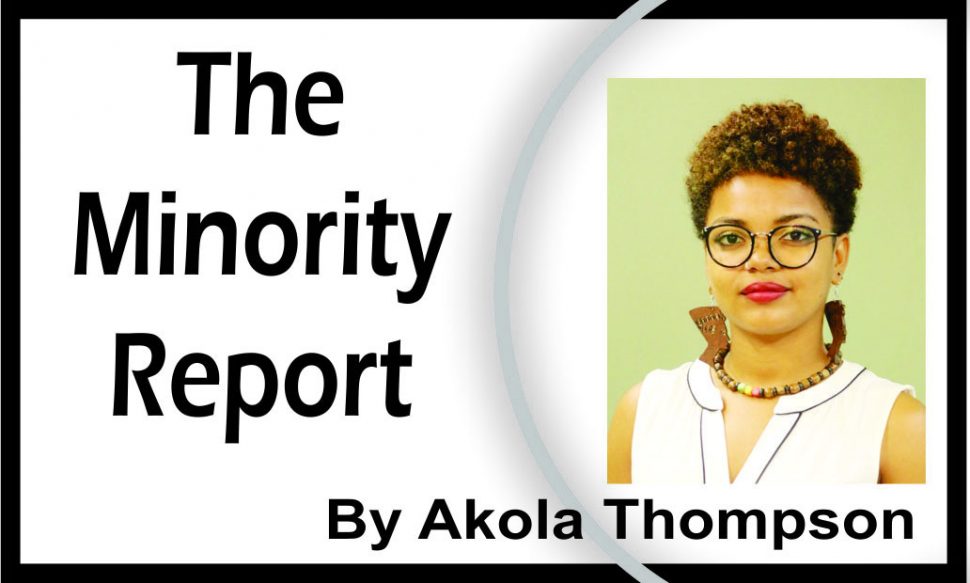There is something about a New Year that makes you start thinking about a fresh start. It just seems so full of possibilities that a history of being proven wrong does not deter you from making wishes and resolutions. In keeping with this tradition, I decided to make a New Year wish list of the things I truly hope for in my homeland. Call it idealism or just wilful blindness, but I do believe that we can eventually get where we need to be if just enough people commit. So here goes…
Acceptance of our anti-Black problem – I know, I know. Persons maintain that it does not exist, so it is highly unlikely that they can ever begin to accept it, but as I said, I have hope. I have hope that someday, Guyanese will remove their blinders of unity and recognize the specific discrimination that Black people continue to face here. By keeping their heads in the sand about the everyday presence and impacts of anti-Blackness, they are not only operating from a place of wilful ignorance, but are also ensuring that these beliefs and the systems that support it remain. As a result, persons who are Black continue to face higher rates of violence from the police, higher imprisonment rates, lower access to bank financing and everyday stigma from those around them. These experiences are even more pronounced when the reality of colourism is taken into consideration as those who are lighter skinned or ambiguously mixed, often face lower levels of anti-Black discrimination than those who are darker skinned and/or monoracial. The thing about anti-Blackness is that while it specifically affects Black people, persons of other ethnicities who are dark skinned are also impacted due to anti-Black stigma and stereotypes. Being honest about anti-Blackness in Guyana does not mean taking away from the experiences or histories of those who are not Black, but rather about raising awareness for rectification of the biases and stereotypes that impacts Black communities and the way they are able to experience life.
Greater environmental consciousness – There was a point in time when Guyana seemed to be on a path of greater environmental consciousness. With the discovery of oil and subsequent major oil finds however, green futures seem to be more of a distant past now. When it comes to environmental justice and consciousness, there is a tendency to frame it as being the responsibility of individuals. So persons are encouraged to practice habits that will lessen their carbon footprint such as, not drinking from plastic straws, using recyclable bags, carpooling etc. While individual practices are good, ultimately they do not matter, as the major drivers of climate change are industries such as oil, fast fashion, beverages, logging etc. While Guyana is a relatively low contributor to climate change, small States such as ours have already begun to pay for the excesses of those in the Global North. It does not help that we have a government that actively restricts appropriate environmental assessments for major projects and which believes that the removal of mangroves is a smart decision. The fascination with oil and its promised wealth will hasten our already rapidly approaching trajectory towards an environmental crisis. When placed against capital, the environment always loses, but for our sake, one can only hope that this shifts.
Increased accountability for politicians – There has for some time existed a certain god-like status that Guyanese have placed on politicians, despite how undeserving they are of this. While marginal progress has been made when it comes to holding politicians accountable, Guyanese largely continue to buy into the idea that those in political office have a divine right to rule. This has made us a people very lethargic and accepting of the things that politicians dish out to us. This is especially true if it is that the ones in power look like you. My wish is that we would move away from holding politicians in high esteem and effectively mobilize to challenge them to do fair and equitable work. There needs to be more focus on policies rather than personalities. Less groupthink and more critical assessments of the way they lead.
Moving away from a culture of violence and exclusion – Marginalized groups and communities usually face significant levels of violence based on their gender and sexual identity. Women, Trans persons and other gender and sexual minoritized groups often spend a significant portion of their lives trying to protect themselves, and/or recovering from the harm that was inflicted upon them. One might be inclined to say that Guyana is not as exclusionary to LGBTQI+ persons as it was several years ago, and certainly, there have been some shifts. These changes however have largely been related to visibility rather than the social and legislative changes that are necessary. While visibility is good, visibility does not do much when it comes to issues they continue to face such as workplace discrimination, homelessness and hate crimes. In shifting gender relations from one that is centred on violence and control, towards one that is based on mutual respect and understanding, we will be better poised to create an environment where violence and exclusion is not a normal expectation.









